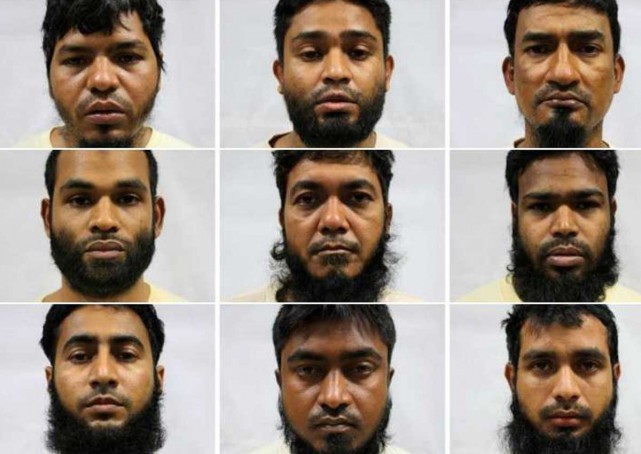Dhaka probe into how group became radicalised

The group of 26 Bangladeshi nationals deported by Singapore for planning terror attacks back home is the first such instance of a large number of Bangladeshis becoming radicalised while working abroad, say police and security experts.
Dhaka police said the men, 14 of whom have been arrested and detained in jail, had gone to Singapore to work as construction workers to earn money to send home. The police are now investigating how the men became radicalised.
"This is the first such case. They don't have any (terrorist) background," Dhaka Metropolitan Police spokesman Maruf Hossain Sorder told The Straits Times.
Bangladesh, a Muslim-majority country of 160 million people, has seen publishers and bloggers targeted - and some of them killed - by militant groups even as the government cracked down on far-right parties such as the Jamaat-e-Islami.
Since 2013, Bangladesh has executed leading Jamaat members who had been convicted of genocide during the Liberation struggle of 1971. The move angered many affiliated groups, which accused the government of waging a politically motivated campaign.
Members of the Bangladeshi group in Singapore also had grievances against their government over its actions against some Bangladeshi Islamic groups and leaders, according to the Singapore authorities. The men were found to have "a significant amount" of radical material, including books and videos of children undergoing paramilitary training with an Islamic State in Iraq and Syria (ISIS) flag in the background.
According to a Dhaka police official, Mr Mashrukur Rahman Khaled, the 14 men are so far found to have links with the Ansarullah Bangla Team militant group, but none with ISIS or Al-Qaeda.
Some analysts see the radicalisation of Bangladeshi workers abroad as a "new phenomenon". "The Singapore case is a big worry as this is a completely new phenomenon. These are working-class people," said Dr Shantanu Majumder, an associate professor at Dhaka University.
With millions of Bangladeshis working outside the country, analysts say it would be difficult for Bangladesh or any other country to keep track of citizens abroad.
Referring to the release of photos of the Bangladeshi men by the Singapore authorities, security analyst Md Abdur Rashid told The Straits Times: "I think this creates social pressure on others if they are thinking of getting involved in similar activities.
"If each and every government takes such strong steps, then we can succeed against terrorism."
As for the 12 men who were released after they returned to Bangladesh, the executive director of the Institute of Conflict, Law and Development Studies in Dhaka added: "While there is a probability that (they) may escape surveillance, there is also a possibility that their return to their families will help them lead a normal life. Because in Bangladesh, most families are not radicalised and there is an inherent resistance to violence."

This article was first published on Jan 22, 2016.
Get a copy of The Straits Times or go to straitstimes.com for more stories.